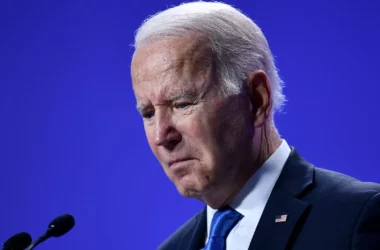Italian Prime Minister Giorgia Meloni has sharply criticized the manner in which top European Union positions are being allocated, condemning what she termed as “backdoor deals” that overlook the sentiments of European voters.
Addressing the Italian parliament on Wednesday, Meloni expressed her dismay over recent announcements by six EU leaders, predominantly from centrist parties, regarding the appointments of Ursula von der Leyen, António Costa, and Kaja Kallas to key roles within the European Commission, European Council, and foreign policy service, respectively.
“It is surreal that the opinions of European citizens are not taken into account in these decisions,” Meloni asserted, referring to the process as oligarchic and questioning the democratic legitimacy of such appointments.
The controversy stems from decisions made by EU leaders that were announced a day earlier, despite Meloni’s European Conservatives and Reformists (ECR) group gaining ground in the European Parliament during the recent elections. Meloni emphasized the need for the EU’s decision-making processes to reflect the shifting political landscape in Europe.
Describing the EU as “an invasive bureaucratic giant,” Meloni advocated for Italy to secure a European Commissioner role focused on reducing bureaucracy. She also underscored her party’s desire for significant portfolios within the European Commission that align with their economic priorities.
Ahead of the EU leaders’ summit in Brussels, where discussions on these appointments will take place, Meloni’s remarks highlight growing tensions within the bloc over the balance of power and representation. While technically Ursula von der Leyen can secure another term with majority support from EU leaders, Meloni’s objections underscore political sensitivities surrounding the appointments.
Meloni’s criticisms have resonated particularly in the aftermath of the European elections, where her party emerged as a significant force within the European Parliament. The upcoming decisions on EU leadership appointments are expected to influence the political dynamics within the bloc in the coming months.
EU leaders are slated to finalize their decisions during their summit, aiming for the European Parliament to vote on Ursula von der Leyen’s potential reappointment by mid-July. As the discussions unfold, Meloni’s stance underscores broader debates within Europe over democratic representation and institutional transparency.








